SCS Marine Protection Discussed in FSI-UP Partnership
This article was first published on the Foreign Service Institute (FSI) website.
The Foreign Service Institute (FSI) and the University of the Philippines Center for Integrative and Development Studies (UP CIDS) Strategic Studies Program co-hosted a roundtable discussion titled “Under the Sea: Marine Life in the South China Sea” on 16 July 2024 at the Asian Center in UP Diliman.
The event assessed the current policies and practices on environmental protection in the South China Sea (SCS). It explored the current marine data collection and research practices, the importance of collaborative research among scientists from SCS littoral states and potential conservation efforts for their marine ecosystem.
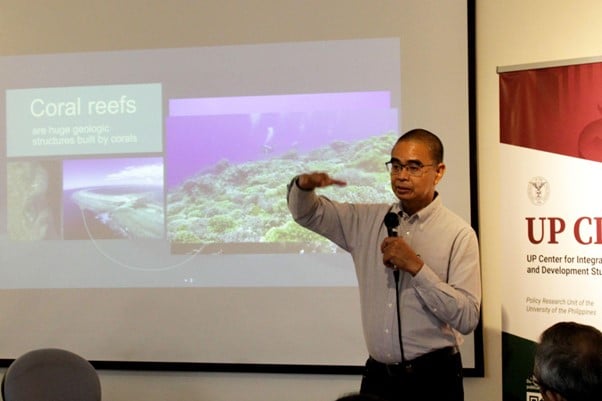
Dr. Wilfredo Licuanan, Professor at De La Salle University, provided a snapshot of the physiology of coral reefs and the current status of hard coral cover in the SCS. He highlighted the importance of recognizing the connectivity of these reefs in the broader marine ecosystem. Licuanan stated that challenges persist in accurately measuring coral cover, noting the variability in coral distribution and sometimes faulty data collection methodologies. He underscored the importance of long-term, systematic, and organized monitoring of coral reefs in informing resource management and conservation efforts.
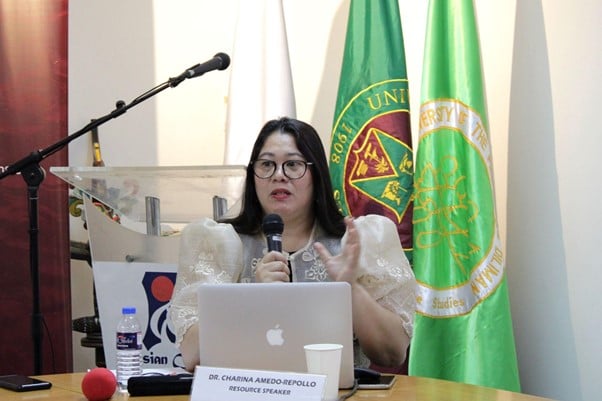
Dr. Charina Lyn Amedo-Repollo, Deputy Director for Research at the UP Marine Science Institute (UP-MSI), discussed the threats and opportunities for the preservation and conservation of marine life in the West Philippine Sea (WPS). She stressed the importance of coral reef dispersal and connectivity in the SCS, particularly the Kalayaan Island Group (KIG). Protecting these areas has far-reaching implications beyond the Philippines due to the interconnected nature of marine ecosystems, she noted.
Amedo-Repollo highlighted opportunities for collaboration to address these issues, including creating marine protected areas (MPAs), facilitating an ecosystem approach to fisheries management (EAFM), working on transboundary issues such as fisheries and pollution, supporting more marine scientific research (MSRs), and engaging the public in discussions about the environmental and geopolitical challenges in the West Philippine Sea. Data-sharing on the status of coral reef habitats and marine resources in the WPS was identified as one pathway towards collaboration among the SCS littoral states.
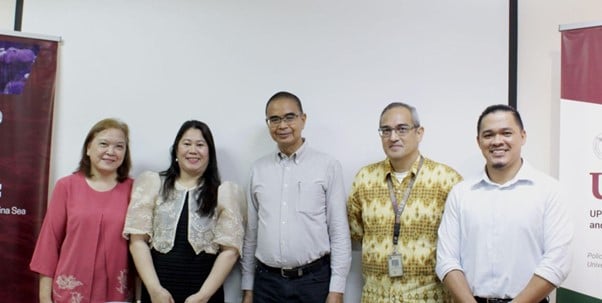
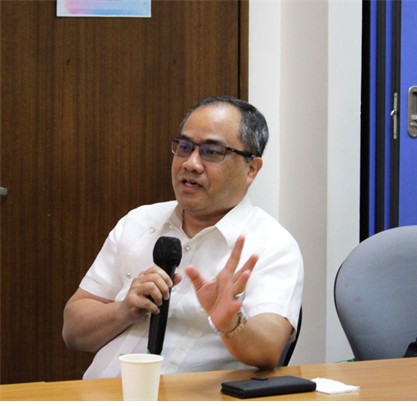
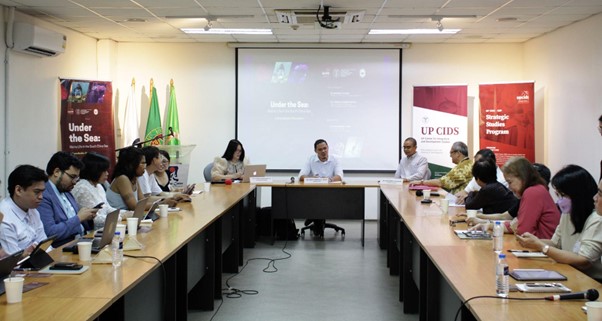
Participants of the roundtable discussion were from the FSI, UP CIDS, members of the academe, other government agencies, media, and non-governmental organizations (NGOs).
FSI is the training and research office of the Department of Foreign Affairs, created under Presidential Decree No. 1060 and expanded by Republic Act No. 7157. The FSI Board is chaired by the Secretary of Foreign Affairs, with the Chairperson of the Civil Service Commission (CSC), the FSI Director General, the President of the University of the Philippines (UP), and the President of the Development Academy of the Philippines (DAP) as members.